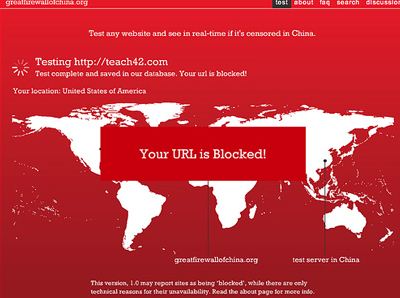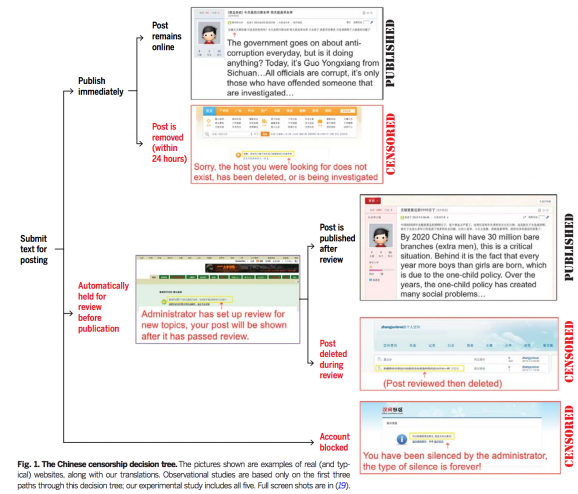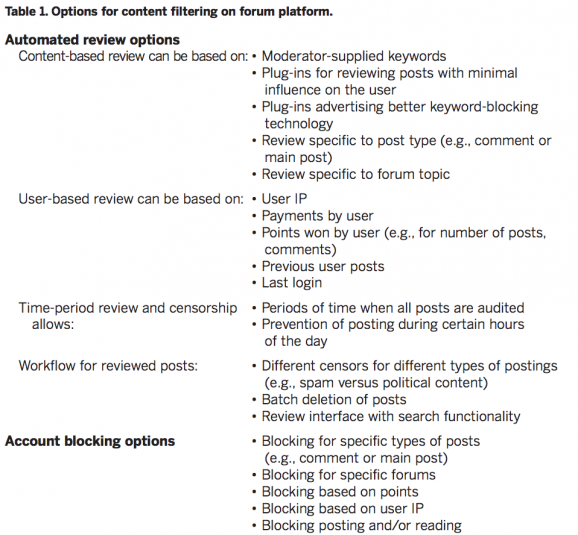Researchers Create Fake Social Network To Figure Out Chinese Censorship
This article is more than 2 years old
 For those of us who spend ridiculous amounts of time on the internet, it’s hard to imagine what it would be like to live in a society in which our online use was censored. I mean, all that widely available and freely posted content certainly isn’t being manipulated in any way, and there’s no censorship of content here, right? And no one believes ISPs and governments should be able to discriminate or charge certain users more… Okay, so I’m feeling a little sarcastic when it comes to Big Brother, the NSA, and net neutrality, but I have to admit that, compared to some other countries, we still have it pretty good here. According to Reporters Without borders, countries such as China, Iran, North Korea, and Syria all practice “pervasive” censorship and filter information online for political and social reasons, and even sometimes black out the news completely. Recently, Harvard and University of California San Diego researchers tried to figure out how China’s system of censorship works, and in order to figure it out, they created a fake social network.
For those of us who spend ridiculous amounts of time on the internet, it’s hard to imagine what it would be like to live in a society in which our online use was censored. I mean, all that widely available and freely posted content certainly isn’t being manipulated in any way, and there’s no censorship of content here, right? And no one believes ISPs and governments should be able to discriminate or charge certain users more… Okay, so I’m feeling a little sarcastic when it comes to Big Brother, the NSA, and net neutrality, but I have to admit that, compared to some other countries, we still have it pretty good here. According to Reporters Without borders, countries such as China, Iran, North Korea, and Syria all practice “pervasive” censorship and filter information online for political and social reasons, and even sometimes black out the news completely. Recently, Harvard and University of California San Diego researchers tried to figure out how China’s system of censorship works, and in order to figure it out, they created a fake social network.

Their article in Science Magazine details how they essentially reverse-engineered the system. First, they created accounts and posted messages on various social networks to see what would be censored. After getting their feet wet, the team created its own fake social network — we’re talking a website and URL, servers, software platforms, users, the whole deal — so they could experiment with the content-censoring programs. In addition to how-to documentation and guides, the software company they contracted with in China helped, giving recommendations for censorship that adhere with government standards. They also learned various strategies for deleting posts (manually or via auto filter), and then banning users and IP addresses.
The team arrived at some interesting findings after testing out Weibo (Twitter) and its fake network. One thing they learned is that posts that criticized the government didn’t automatically get censored, but any that urged others to protest or revolt, or otherwise galvanized action against the government, were. In their study, they found that the words such as “masses,” “incident,” “terror,” and “demonstration” were quick triggers for censorship.

Ultimately, each social network carries out its own censorship. “We conclude that the government is (perhaps intentionally) promoting innovation and competition in the technologies of censorship,” the report reads. “Such decentralization of policy implementation as a technique to promote innovation is common in China.” In other words, the government itself isn’t censoring people — the networks are. And they don’t do it all the exact same way, which means that there’s no blanket policy or approach, allowing the illusion of free press (or something like it).












